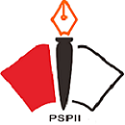School Learning Practice Program in Improving Pedagogical Competence of Preservice Teachers
Abstract
Keywords
Full Text:
PDFReferences
Ananda, R., & Rafida, T. (2017). Pengantar Evaluasi Program Pendidikan. In Perdana Publishing (Vol. 53, Issue 9).
Entang, M. (1980). Program Pengalaman Lapangan. Proyek Pengembangan Pendidikan Guru Depdiknas.
Hidayat, T., & Asyafah, A. (2019). KONSEP DASAR EVALUASI DAN IMPLIKASINYA DALAM EVALUASI PEMBELAJARAN PENDIDIKAN AGAMA ISLAM DI SEKOLAH. Al-Tadzkiyyah: Jurnal Pendidikan Islam, 10(1). https://doi.org/10.24042/atjpi.v10i1.3729
Mahmudi, I. (2011). CIPP: Suatu Model Evaluasi Program Pendidikan. At-Ta’dib: Journal of Pesantren Education, 6(1), 111–125. https://doi.org/10.21111/at-tadib.v6i1.551
Mardicko, A. (2022). Belajar dan Pembelajaran. Jurnal Pendidikan Dan Konseling, 4(4), 5482–5492.
Moleong, L. J. (2018). Metodologi Penelitian Kualitatif, cet. In XI. Bandung: PT Remaja Rosdakarya.
Panduan, T. P. (2019). Buku Panduan Praktik Pengalaman Lapangan (PPL). Unit Laoratorium Pendidikan FITK.
PP. (2008). Peraturan Pemerintah No. 74 Tahun 2008 tentang Guru.
Rifai, N., Fauzan, Sayuti, W., & Bahrissalim. (2014). Integrasi Keilmuan dalam Pengembangan Kurikulum di UIN se-Indonesia; Evaluasi Penerapan Integrasi Keilmuan UIN dalam Kurikulum dan Proses Pembelajaran. Tarbiya; Journal of Education in Muslim Society, 1(1), 13–33.
Saefiana, Sukmawati, F. D., Rahmawati, Rusnady, D. A. M., Sukatin, & Syaifuddin. (2022). Teori Pembelajaran dan Perbedaan Gaya Belajar. MAHAGURU: Jurnal Pendidikan Guru Sekolah Dasar, 3(1), 150–158.
Sudjana, D. (2006). Evaluasi Program Pendidikan Luar Sekolah. Remaja Rosdakarya.
Sugiyono. (2011). Metode Penelitian Pendidikan. Alfabeta.
Sugiyono. (2018). Metode Penelitian Kuantitaf, Kualitif, dan R&D. Alfabeta.
Sulo, S. L. La. (1984). Pengajaran Mikro. Dirjen Pendidikan TInggi.
Taulabi, I. (2017). Pendidikan Agama Islam dan Integrasi Pendidikan Karakter. Jurnal Pemikiran Keislaman, 28(2). https://doi.org/10.33367/tribakti.v28i2.488
Zaenal, A. (2016). Evaluasi pembelajaran. In Remaja Rosdakarya.
DOI: http://dx.doi.org/10.24042/002024152314000
Refbacks
- There are currently no refbacks.
Copyright (c) 2024 Al-Tadzkiyyah: Jurnal Pendidikan Islam

This work is licensed under a Creative Commons Attribution 4.0 International License.

Al-Tadzkiyyah: Jurnal Pendidikan Islam is licensed under a Creative Commons Attribution 4.0 International License. Copyright © UIN Raden Intan Lampung. All rights reserved.








